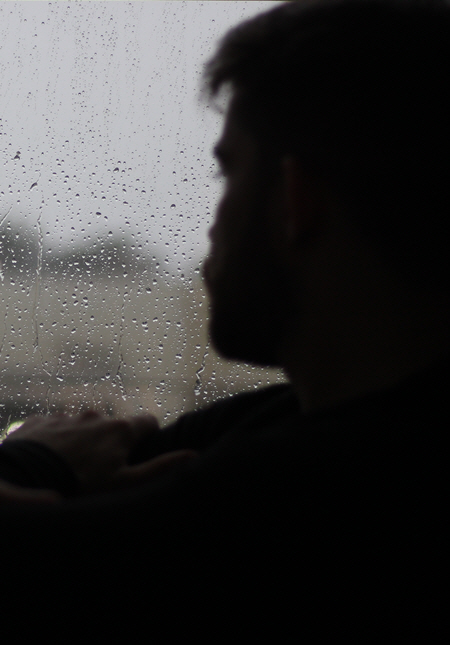 Like storm clouds that she couldn’t stop…
Like storm clouds that she couldn’t stop…
Jackie* could always see her depression approaching from afar, and that’s how it felt. And when those clouds arrived, she felt like a different person.
She got into fights with her husband over stupid things. She paced back and forth in her bedroom, the thoughts of self-hatred pirouetting endlessly through her mind. And at work, she flipped the blinds closed and hoped no one would peek their head in her door.
And so she waited.
The clouds eventually lifted, but they were never replaced with rainbows and sunshine like a real cloud. It was just an overcast calm… a break while she braced herself for another storm to come.
Jackie was getting tired of these storms, and so was everyone around her.
Her perpetually patient husband was losing his cool with her. Her once steady ascension through the ranks at work had stalled out.
Her depression was no longer just a personality quirk or something she could ignore. She’d done everything that she knew to fix her depression, but nothing really worked.
If it were just feeling sad, you might soldier on.
But it’s not. It’s affecting work, your relationships, your sleep, and most of the things that are important to you. Starting things has become difficult. Projects at work; chores around the house; even responding to emails.
You know you need to do them, but you can’t summon up the energy to start. Your friends have jokingly said things about you being a “Debbie Downer,” and it feels like others might be tired of your depression. It’d be nice if you could put on a happy face, but sometimes it’s all you can do to make it through the day.
If you can’t be happy for yourself, you’re not really sure you can put a mask on for others, either. And the night is the worst. 11 pm is the worst time of the day. Everyone else is winding down for the day, and you’re left alone with your thoughts. All the self-defeating and negative perceptions come home to roost in your brain, and it hurts.
Everyone around you dismisses it when you say it’s your depression, and they act like that’s just an excuse or a deflection. They seem to think that you wake up every morning and say to yourself, “That was so fun yesterday that I think I’ll be depressed again.” Don’t they realize how hard it is? How painful depression can be? If you could snap out of it, you would.
You know your friends and family love you and want to help, but it just highlights how alone you are. No one gets it, and it seems like you must trudge through this on your own, without companions or guides to help you.
 Depression is real, and you need more than platitudes and well wishes.
Depression is real, and you need more than platitudes and well wishes.
At Dallas Psychotherapy, we start treatment by acknowledging that depression is a reality.
Society sends the subtle message that you can get over depression if you pull yourself up by your bootstraps and will yourself out of it. That message is fiction.
We start by acknowledging not only that your depression is a real and validated experience, but that it’s not going to go away without help. Depression is a disorder, just as real as the common cold or diabetes, and we treat it as such.
You’ll learn to identify the patterns that reinforce depression.
If you have a broken leg, you don’t go snow skiing, and if you have tuberculosis, you don’t run a marathon. But if you have depression, you likely do a lot of stuff that not only doesn’t help, but actively sustains the depression. The odd thing about human beings is that sometimes when a solution doesn’t work, instead of finding a new answer, we double down on ineffective strategies, hoping that maybe this time it will work.
We take a full inventory of your thoughts, feelings, and emotions and provide you an education about what has been proven to help depression and things that can exacerbate the situation.
You’ll then acquire skills to restructure your thoughts, feelings, and daily life.
There are three kinds of thoughts that lead to sustained depression: negative thoughts about yourself, the environment around you, and your future. If you think that you’re a pretty lousy person, that no one likes you, and that your future is grim and hopeless, it makes sense that you would be depressed. However, there are three things you can do to lift the fog of depression: alter your thoughts, utilize a healthy support network, and engage in life affirm and pleasant activities.
Through work with a counselor, you’ll learn how to react to and combat pessimistic thoughts with realistic thoughts, build and access a social support network, and develop a plan of activities that help depression lift.
Ultimately, you’ll learn to support your mental health.
 Don’t stay stuck.
Don’t stay stuck.
Depression is a bit like honey: it doesn’t take much to get it stuck on your hands, and it can feel impossible to rid yourself of it.
The advice you get from friends and family is usually not helpful at best, and at worst, it can deepen your feelings of hurt when they don’t seem to understand. Choose to get help.
Don’t believe depression’s self-defeating lies. You can have a happy and full life again!
Call now and let’s schedule your free 15-minute consultation: (469) 225-0344.
*Name changed to preserve client confidentiality.

